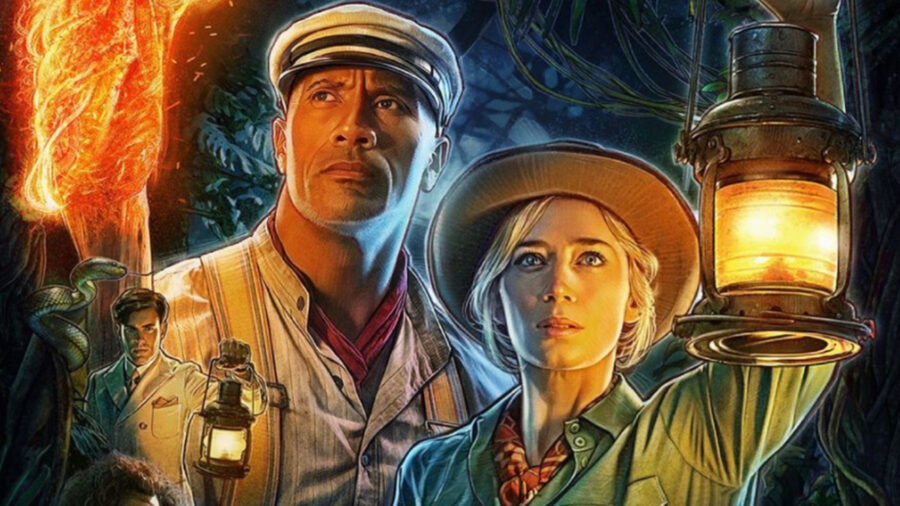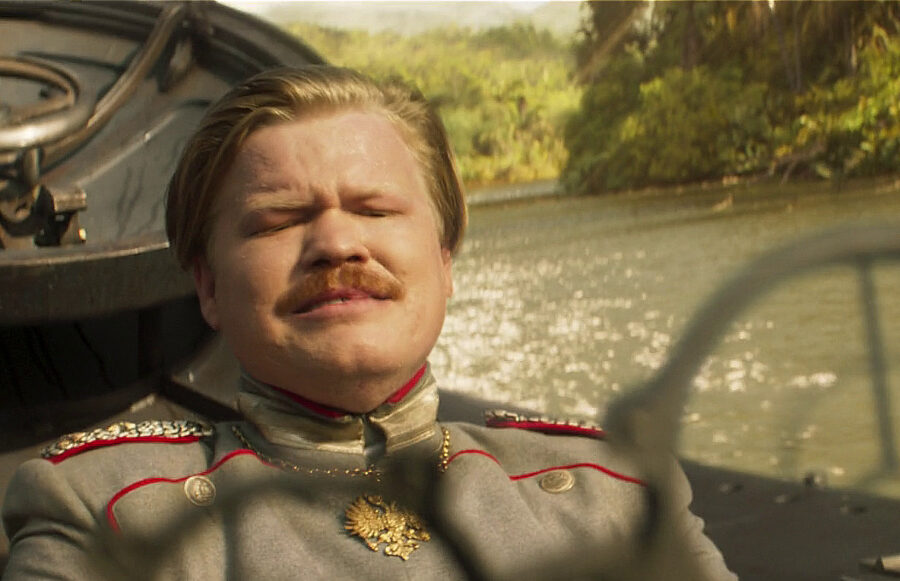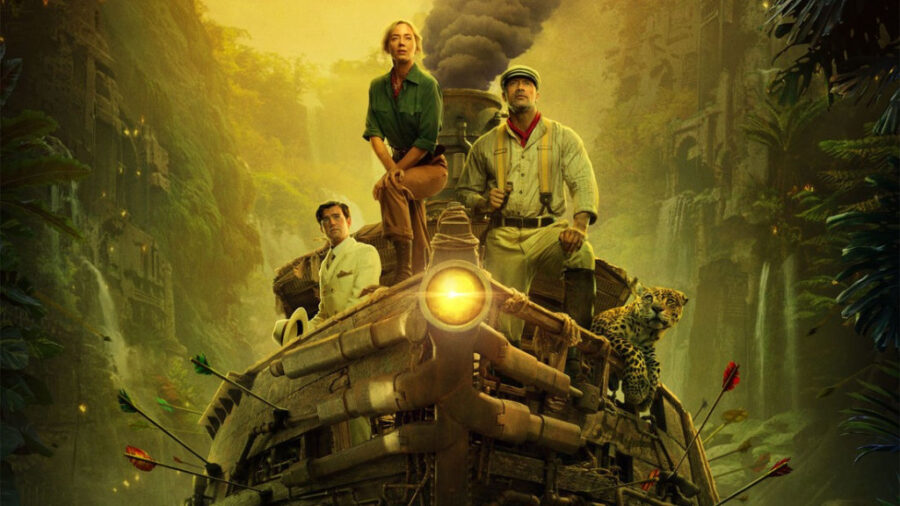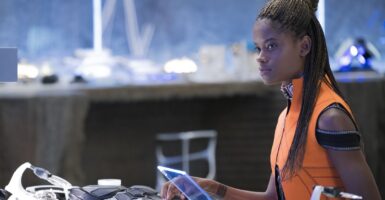Jungle Cruise Review: Stop The Boat And Let Us Off
Our Jungle Cruise review pulls no punches.
This article is more than 2 years old

Jungle Cruise is a movie you have seen before. Naturally, you have not seen this exact adventure where a snarky riverboat captain (Dwayne Johnson) has to ferry an excitable scientist (Emily Blunt) and her foppish brother (Jack Whitehall) into the depths of the wilderness to find a magical tree. However, it will be very difficult for anyone with even a modicum of movie film familiarity to not start making comparisons to other noteworthy pieces of adventure cinema. Whether it’s the clear inspiration of the untouchable classic The African Queen, the unavoidable flavor of any Indiana Jones entry, a surprising amount of similarity to Stephen Sommers’s The Mummy, or even the shocking number of recognizable beats and concepts from another Disney theme park ride that was turned into a movie. All these elements are right in front of your face and Jungle Cruise does not seem to be ashamed of it.
And here’s the thing: being derivative is not an inherently bad thing. So much art is built upon what came before and often wants to celebrate its forebearers. What matters is that a new endeavor takes what it loves from its inspirations and weaves it into something that feels fresh in some distinct way. Sadly, Jungle Cruise is never able to step off the shoulders of the giants it wants to stand on. It seems content to exist as a collage of these influences instead of forging its own identity. As such, there is very little in Jungle Cruise that ever comes across as its own.
Strangely, that is not the worst of Jungle Cruise‘s problems. The movie might be a contender for the most 1.5x speed mainstream film in recent memory. Director Jaume Collet-Serra and editor Joel Negron have somehow managed to construct a movie where the term breathless feels like a woeful understatement. Every scene in the first three-quarters of Jungle Cruise makes you wonder if there is someone off-camera incessantly clapping their hands and yelling, “Chop chop!” at the entire production. In what might have been an effort to match the witty banter of its two lead characters, the film is a neverending machine gun of scenes that never allow the characters moments to stop and be human beings. It’s a relentless pace that makes you feel out of breath before the heroes are even on their journey proper.

And even when they do sail off into the treacherous jungle, the missteps continue to build. There are two villains in the story and either one is interesting or entertaining enough to hold down the movie on their own. Jesse Plemons steals the show as the cartoonishly wicked Prince Joachim, a completely unsympathetic and unabashed baddie who feels welcome in the modern roster of duplicitous or neutered Disney villains. Any scene with Plemons is a welcome respite from the rapid-fire procession of the movie’s pacing, and he is clearly having a mustache-twirling grand time. Less successful is Edgar Ramirez as the more complex Aguirre, a spirit made up of magical snakes who has a potentially compelling backstory but is drowned out by the movie’s need to zip along at maximum warp.
But what about certified charm factories Dwayne Johnson and Emily Blunt? While they do bring their expected level of A-lister expertise and charisma, they too must be sacrificed to the God of Fast-Forward. Any attempt at cementing real chemistry and connection between them is undercut by the movie’s breakneck momentum. As they are unwavering professionals, they do manage to get enough character across to avoid being bland stand-ins. However, it is a testament to how damaging the film’s construction is that two of the most assured actors in mainstream movies can only come across as okay in this.
And then, there is Jack Whitehall. As has been done countless times at this point, there has been much ado about his status as Disney’s first canonically gay lead character. And though his admission scene is clear about his sexual status, it still feels like the kind of moment that will be easily reconfigured for certain international markets to downplay or erase his queerness. But that’s not the real crime at the heart of this passive progressiveness. What really stings is that Whitehall’s character in both performance and seemingly on the scripted page is a cavalcade of tired stereotypes. Comically vain, overloaded with luggage, and decidedly “unmanly”, it’s the kind of role that belongs in the past and not one to champion as a landmark in representation.

There is very little in Jungle Cruise to like outside of its possible ability to keep some very young and undiscerning kids distracted for two hours. What is doubly frustrating is that so many of its faults aren’t interesting or amusing. They are just… there. As a creative endeavor, Jungle Cruise is as airy and inert as the static mannequins that fill the actual theme park attraction. But, the film’s attempt to cover that up with a lightning-speed pace only points out how glaring a failure this picture really is. You are far better off watching any of the inspirations listed at the beginning of this review.













